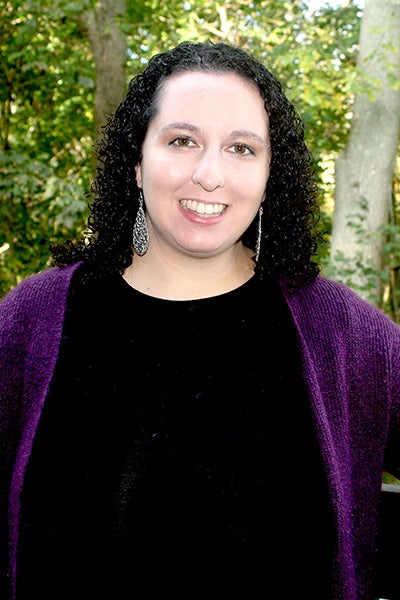The University of Rhode Island College of Health Sciences welcomed Assistant Professor Jessica Cless to the college recently. An experienced therapist who specializes in working with survivors of psychological trauma, Class is part of the Department of Human Development and Family Science. Learn more about one of the College’s newest professors:
Education: Ph.D., family studies and human services – marriage and family therapy, Kansas State University; M.S., marriage and family therapy and counseling, Kansans State University; B.A., family studies and human services, Kansas State University.
Recent experience: Therapist, Andrews and Associates Counseling, Manhattan, Kansas; Assistant Professor, Washburn University, Topeka, Kansas; Director of Behavioral Health, Wamego Community Health Ministry, Wamego, Kansas; Marriage and Family Therapy Intern, Family Life Ministry Center, Fort Riley, Kansas.
Teaching focus: Cless is part of the the Couple and Family Therapy program within HDF. She primarily teaches ethics and diversity, and this semester is leading a professional seminar during which graduate students finish program requirements, including a final research paper. Her specialty is in traumatic stress in families and trauma-informed systems, and as a therapist, she focuses on adults who have had a history of trauma or childhood sexual abuse. Cless is planning to propose a new course for undergrad students on psychological traumatic stress.
Research focus: Cless’ research focuses on the overlap between mental and physical health. She is working on creating a trauma-informed physical activity program for women who are survivors of sexual assault. She plans to work with survivors of trauma to develop exercise programs that specifically address their individual needs.
“Some trauma survivors find exercise to be really helpful and empowering. It’s good for your body; it’s good for your mind,” Cless said. “But some people who go through trauma find it’s hard to engage in exercise. If you think about a history of sexual assault, getting fit, for example, can be triggering for some because they may feel they are putting a target on their back for something else to happen.”
Cless is working with Assistant Professor Mark Hartman in the Department of Kinesiology to create exercise interventions with parents and children, incorporating fun physical activities that feel like games families want to play. She is also preparing a grant proposal to develop mental health prevention for at-risk children by incorporating exercise into their family routine.
“I believe we need more family-based fitness programs. So much of what we learn in the family setting sticks with us over time. If people learn the value of health during childhood, they are much more likely to be healthy adults,” Cless said. “When kids are involved in exercise in school, typically it’s PE. There is always this drop-off in middle school and high school. Generally, the kids who are good at sports tend to remain active, but the kids who aren’t interested in sports kind of drop off in their physical activity. So the idea is that instead of getting just children to be active, we want to get their parents involved so it’s developed as a value that will stick with them because it’s reinforced in the home.”
Why URI?: Cless had been working at Washburn University in Kansas — which focuses mostly on education and less on research — teaching human development courses, and coordinating the addiction counseling program there. While she said she enjoyed teaching multiple classes per semester, Cless was looking to expand her research opportunities. She wanted to work at a larger institution with more research resources, and she found that opportunity at URI.
“I was trained as a researcher, and I felt I wasn’t getting an opportunity to do what I was trained to do. URI seemed like a great fit,” Cless said, crediting HDF Chair Sue Adams with mentoring her and the university’s Office of Research Development for helping open resources to her. “The couple and family therapy program here is very high quality. You get to train students to be therapists, which is really great. But I really came here for the research.”

